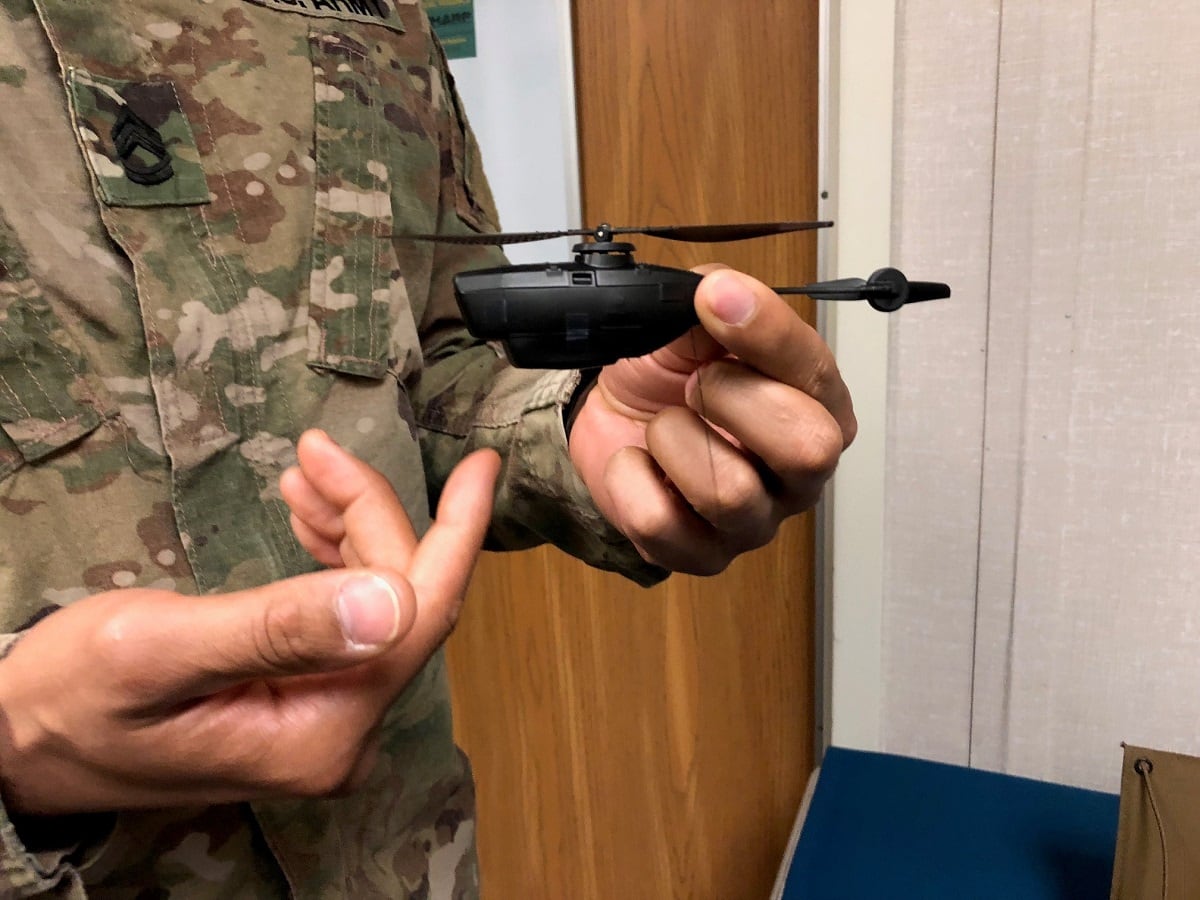The three-year goal of putting a mini-drone in the hands of squad-level soldiers will finally see action in theater when “Fury” paratroopers with the 1st Battalion, 508th Parachute Infantry Regiment take the “Black Hornet” miniature helicopter drone to Afghanistan this month.
The drone capability was first requested by the Army to industry in early 2016 when leaders at the Maneuver Center of Excellence sought a “pocket-sized drone” for low-level reconnaissance.
“We’ve had numerous studies as well as experimentation within our battle labs. We continue to see that soldiers are kind of lacking at the squad level for relevant information that’s immediately around them," Phil Cheatum, deputy branch chief of electronics and special developments at MCoE told Army Times in 2016.
The gap was in short-range recon.
Higher echelon units could and still do call up Gray Eagle or Shadow drones for situational awareness. But a squad of soldiers simply trying to see what’s around the corner or over the next hill was left without a quickly deployable asset.
RELATED

“Using this system, Soldiers can understand their operational environment better so they can make better decisions and make these decisions quicker than ever,” John Paul Kruszewski, lead engineer for the unmanned systems at the U.S. Army Combat Capabilities Development Command Soldier Center said in an Army release. “It makes Soldiers more effective while reducing their tactical risk.”
Kruszewski described the drone as a pair of flying binoculars.
“I was really impressed with the system, its capabilities, and what it offers Soldiers in terms of risk reduction,” Sgt. Ryan Subers, drone operator, said in the same release. “This kind of technology will be a life-saver for us because it takes us out of harm's way while enhancing our ability to execute whatever combat mission we’re on. I’m very grateful for technology like this and to be a part of the first unit to use it.”
The PD-100 Black Hornet was in use in Afghanistan by both British and Norwegian forces since at least 2012. Army testing at the Maneuver Battle Lab Expeditionary Warrior Experiments at Fort Benning began in 2015.
The hurdle? Cost.
Cheatum told Army Times back in 2016 that the Black Hornets were handmade, which made them pricey.
The Army’s first batch order for fielding came in 2018. The device weighs 18 grams, can shoot video and take photo snapshots. Older versions had an estimated 25 minute flight time at a distance of about 1,000 to 1,500 meters.
The newest one purchased by the Army is twice the size of the original, partly so it can also carry light payloads. The Army did not specify what kinds of payloads it would use on the tiny aircraft.
Marines have also tested the drone, and early concepts called for it to be a part of the kit of the newly reconfigured 15-Marine squad. But the most recent training and pre-deployment training for those squads includes a quad copter but no mini-drones for Marines.
That initial order was part of a$2.6 million contract with FLIR Systems. The full contract issued earlier this year was for $40 million.
Neither the company nor the Army previously divulged the quantity of the order but a rough estimate based on listed individual prices translates to at least 1,000 mini-drones to spread across the force.
The company told Army Times that the mini-drone “bridges the gap between aerial and ground-based sensors,” and it offers the same situational awareness as larger drones and the “threat location capabilities” of unmanned ground vehicles.
“It is the start of an era where every squad will have vision beyond their line of sight,” Nathan Heslink, assistant program manager, Soldier Borne Sensors, PEO Soldier said in the release. “The squad will not have any dead space within its area of operations and this allows Soldiers to detect threats earlier than ever, meaning it is more likely Soldiers won’t be harmed during their missions."
Todd South has written about crime, courts, government and the military for multiple publications since 2004 and was named a 2014 Pulitzer finalist for a co-written project on witness intimidation. Todd is a Marine veteran of the Iraq War.



